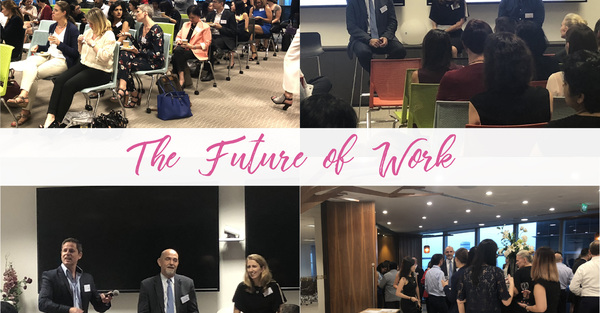Drop off your CV
We serve the global HR community through our offices located in Delhi, Hong Kong, London, New York, São Paulo and Singapore and have placed HR leaders in over 30 countries.
On February the 8th 2018 we co-hosted an event with Willis Towers Watson at LinkedIn’s...

On February the 8th 2018 we co-hosted an event with Willis Towers Watson at LinkedIn’s offices in Singapore exploring the future of work. Darryl Parrant, Country Leader, South Asia, Willis Towers Watson, gave the keynote presentation where he delivered and discussed the results of Willis Towers Watson’s 2017 Future of Work survey.
The survey set out to bust workplace automation myths and discover what might actually be in store for the future workforce. The survey found that workplace automation is expected to double in the next three years. Work currently being done using AI (artificial intelligence) and robotics has risen from 7-12% in the last three years and this is set to continue to increase. One key myth that the survey busted is that workplace automation is the exclusive domain of IT. However more than half of employers say it will also be the responsibility of HR to innovate in order to meet the challenges of automation and digitalisation, particularly in the areas of performance management and talent acquisition. Less than 5% of HR functions say they are fully prepared for the organisational change automation and digitisation might effect.
HR functions that are starting to prepare are split across the actions they are taking, from addressing talent deficits through workforce planning, to defining and enabling careers based on a more agile and flattened organisation structure, amongst others. Many HR functions seem to be unprepared to make the necessary changes to their organisations workforce. 35% of employers said they are unprepared when it comes to deconstructing jobs and identifying which tasks can best be performed by automation and 38% report being unprepared to identify reskilling pathways for talent whose work is being affected by automation.
It is also expected over the next three years that automation will impact leadership roles with 56% agreeing that leaders will need to think differently about the requirements and skills for successors and succession management as a result of automation and 62% believe that those in leadership roles will need to educate workers on how automation changes work. Workplaces will need to recognise and act on the importance of implementing change in their organisations to meet the challenges of the future workforce. For the full report, download it here and you can view the infographic here.
If you are interested in hearing about Elliott Scott HR’s future events, take a look here or contact your Elliott Scott HR consultant.